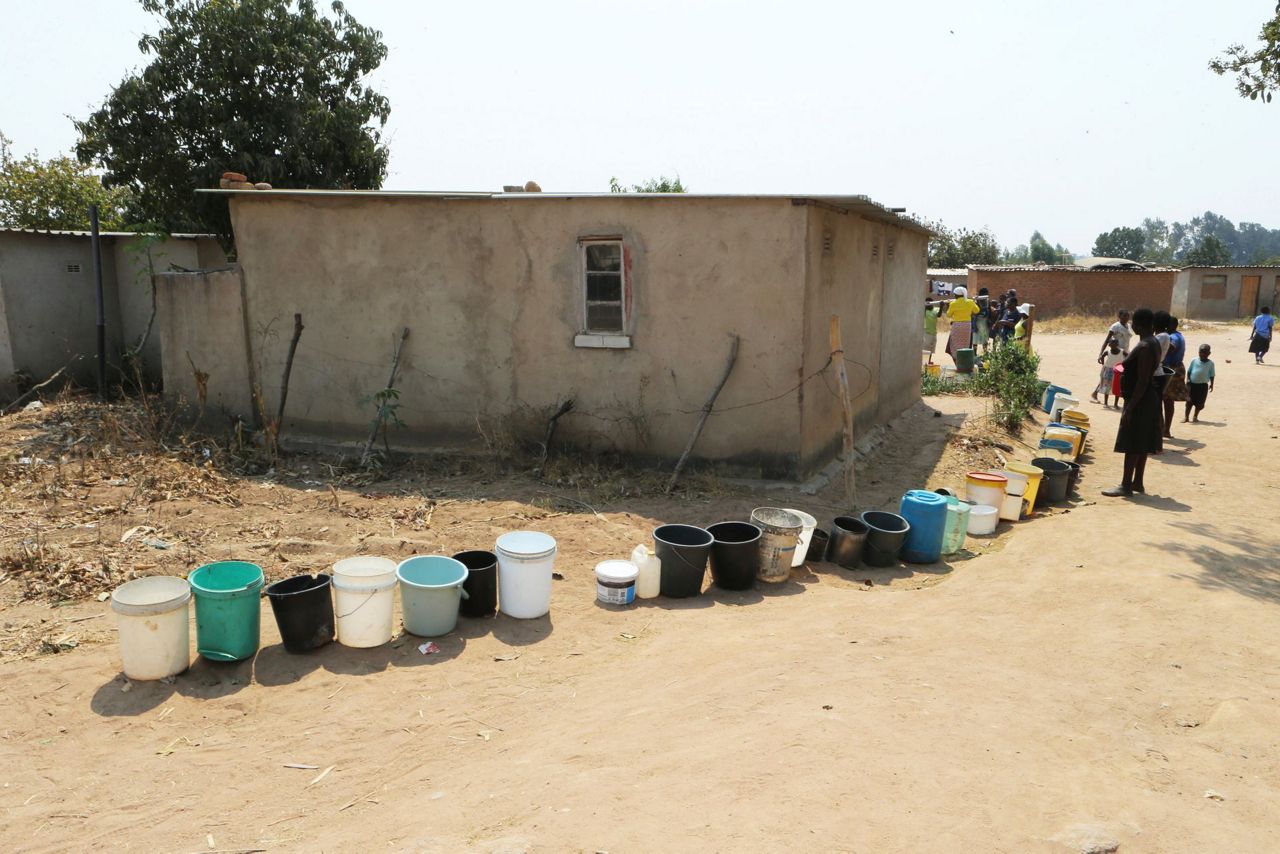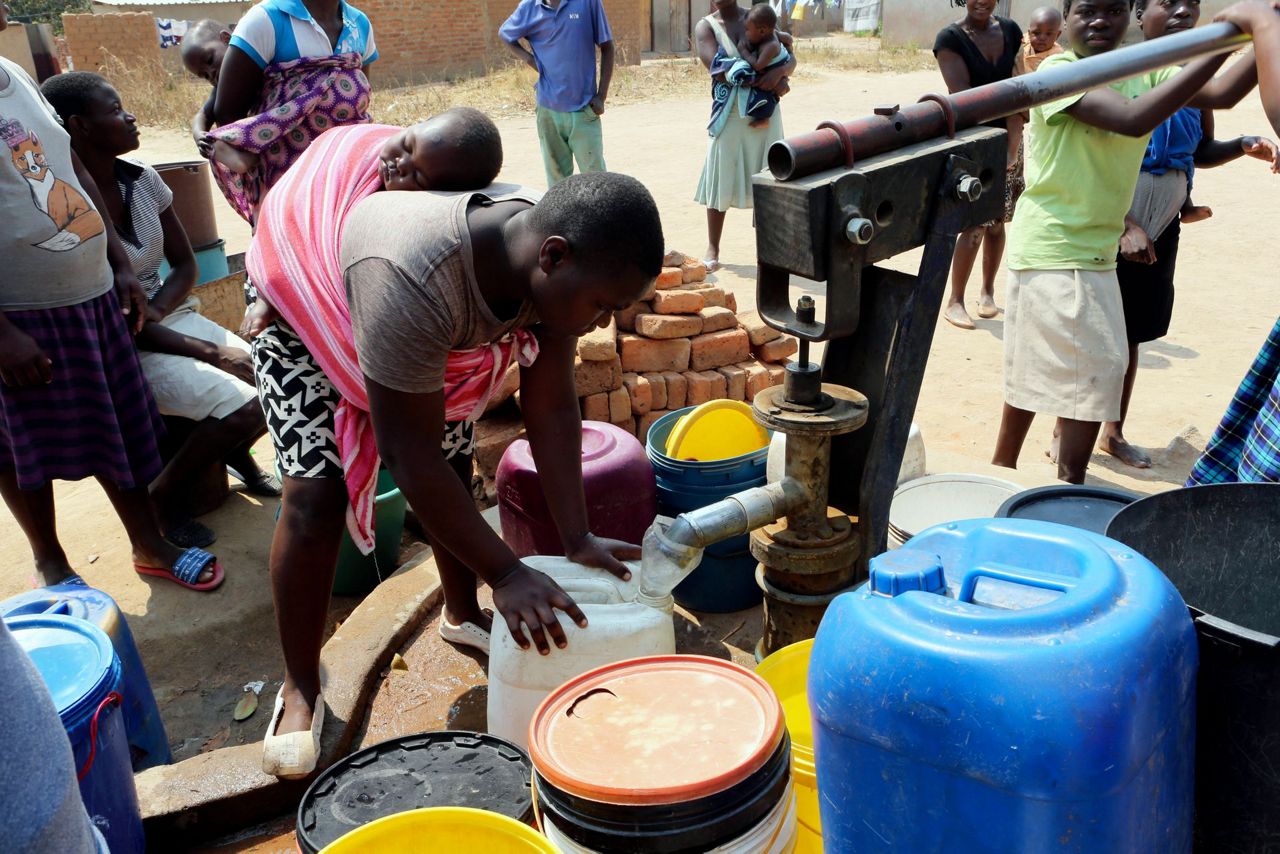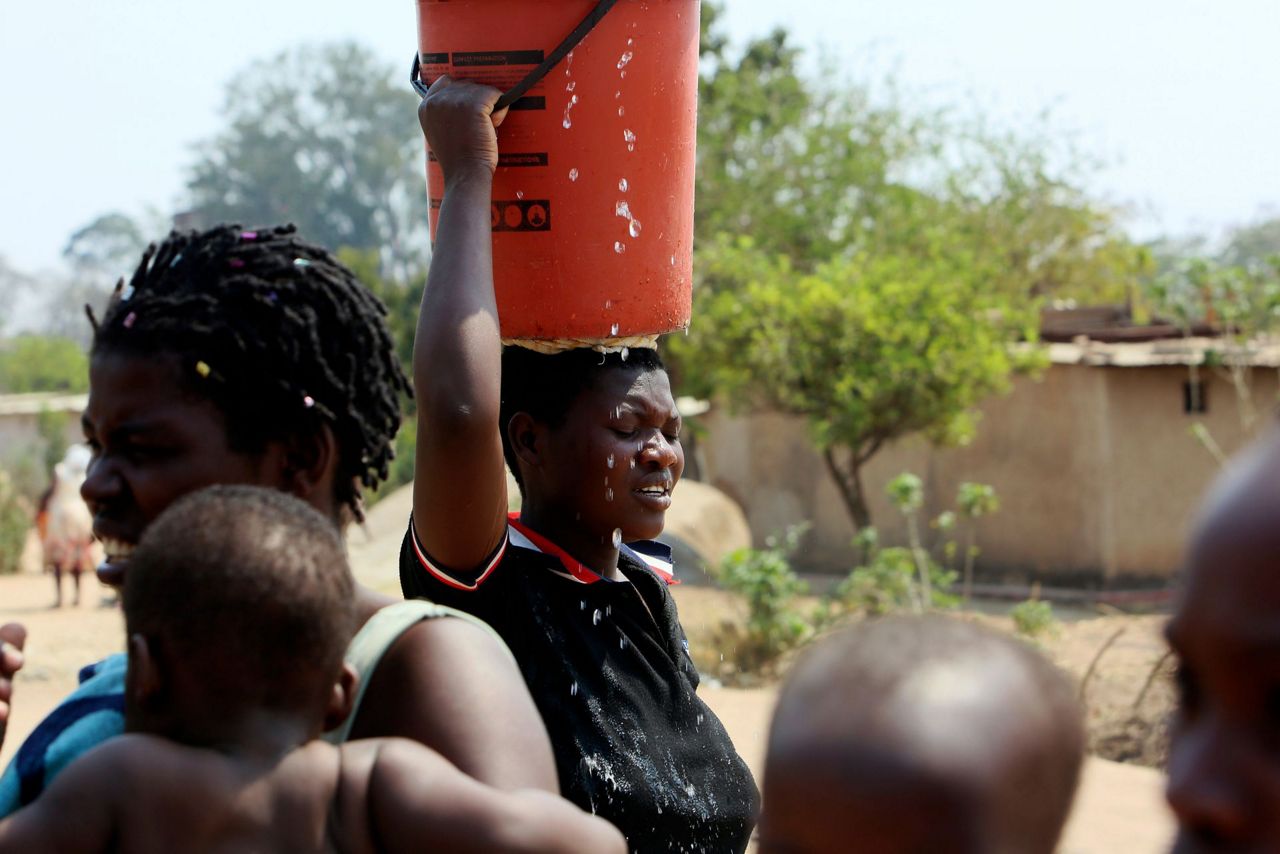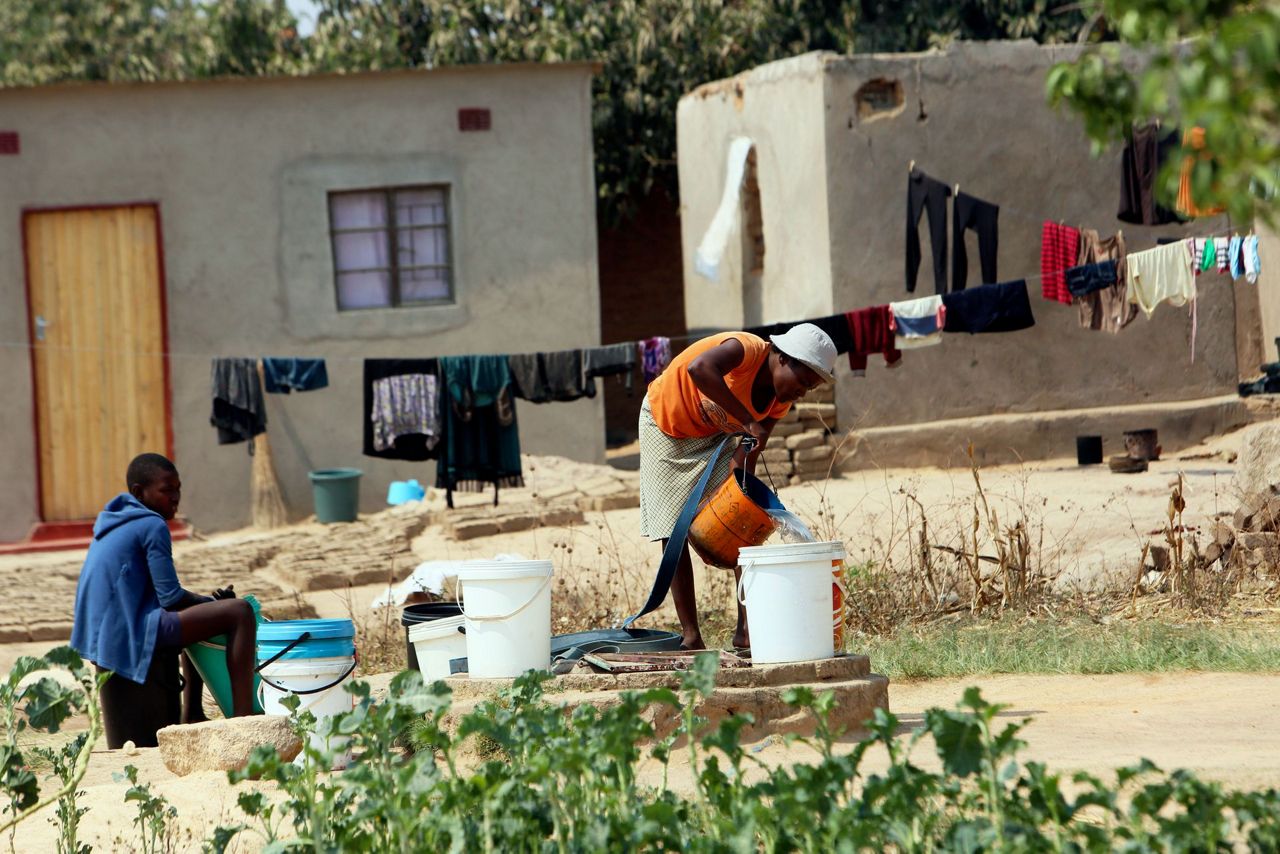HARARE, Zimbabwe (AP) — Tempers flared on Tuesday as more than 2 million residents of Zimbabwe's capital and surrounding towns found themselves without water after authorities shut down the main treatment plant, raising new fears about disease after a cholera outbreak while the economy crumbles even more.
Officials in Harare have struggled to raise foreign currency to import water treatment chemicals; about $2.7 million is needed per month. Meanwhile, water levels in polluted reservoirs are dropping because of drought.
For residents who have seen shortages of everything from medicines to bread to petrol in recent months, the latest indignity brought weariness and disgust.
"The toilets at school are just too filthy, people continue using them yet there is no water," said 12-year-old Dylan Kaitano, who was among many uniformed school children waiting in line at wells, some shoving in impatience. "I didn't go to school today because I have to be here."
Everyone living in Harare is affected, City Council spokesman Michael Chideme said, as residents turned to other options such as bottled water. He called it a dangerous situation because of the risk of water-borne diseases.
"It is a desperate situation," Deputy Mayor Enock Mupamaonde told The Associated Press outside the closed treatment plant. And more people are affected than thought, he said, estimating that another 2 million non-residents enter the city each day to use its services and conduct business.
At the Chivero reservoir, the city's main water supply, plastic bottles, vehicle tires and algae floated in the shallow water which was green and emitted a choking, foul smell.
Zimbabwe's capital now frequently records cases of diseases such as typhoid due to water shortages and dilapidated sewer infrastructure. Some residents for months have been forced to get water from shallow, unsafe wells and defecate in the open, while children pick their way across fetid yards.
The AP earlier this month watched some residents pump water then wait a half-hour for enough water to seep into a well to pump again.
"We are suffering," said Gladys Mupemhi, a resident of the low-income Kuwadzana suburb who said some people woke up at 4 a.m. on Tuesday to wait for hours in line. "We are only allowed a maximum of 20 liters of water per person, what can I do with 20 liters?"
Claudius Madondo, chairman of the residents association controlling the line, said nearby wells were no longer functioning, forcing the rationing. Some of the people waiting heckled him.
"Nothing is working in this country, how do we survive?" Hatineyi Kamwanda, another resident, said. "We can't even use the toilets, the children are not going to school because of this and now we fear cholera is going to hit us again.
"The president should treat us as human beings, we voted for him."
Twenty-six people died last year in a cholera outbreak, leading President Emmerson Mnangagwa to express dismay that Zimbabweans were suffering from a "medieval" disease.
The economic and social pressures follow Mnangagwa as he attends the annual United Nations gathering of world leaders this week.
Zimbabwe once was a bright spot in southern Africa and a regional breadbasket but the economy has collapsed in recent years, and foreign currency is hard to come by. Prices for many basic items continue to rise, and the public health care system falters as some doctors and others say they can hardly afford the commute to work.
As services largely collapse, many Harare residents in recent months have found themselves lining up at wells in the middle of the night for water or lighting their homes by candle or mobile phone.
The deepening frustrations have exploded more than once into protests that have swiftly been followed by sometimes violent government crackdowns.
More than 50 government critics and activists have been abducted in Zimbabwe this year, at times tortured and warned by suspected state security agents to back off from anti-government actions. The government over the weekend warned against what it calls "fake" abductions it asserts are meant to make it look bad.
One abducted woman was forced to drink raw sewage, Human Rights Watch said — a rare example of something that exasperated Harare residents now have in surplus.
___
Follow Africa news at https://twitter.com/AP_Africa
Copyright 2019 The Associated Press. All rights reserved. This material may not be published, broadcast, rewritten or redistributed.






